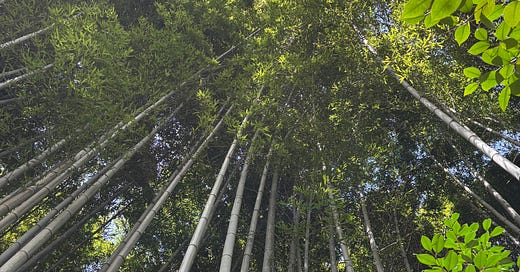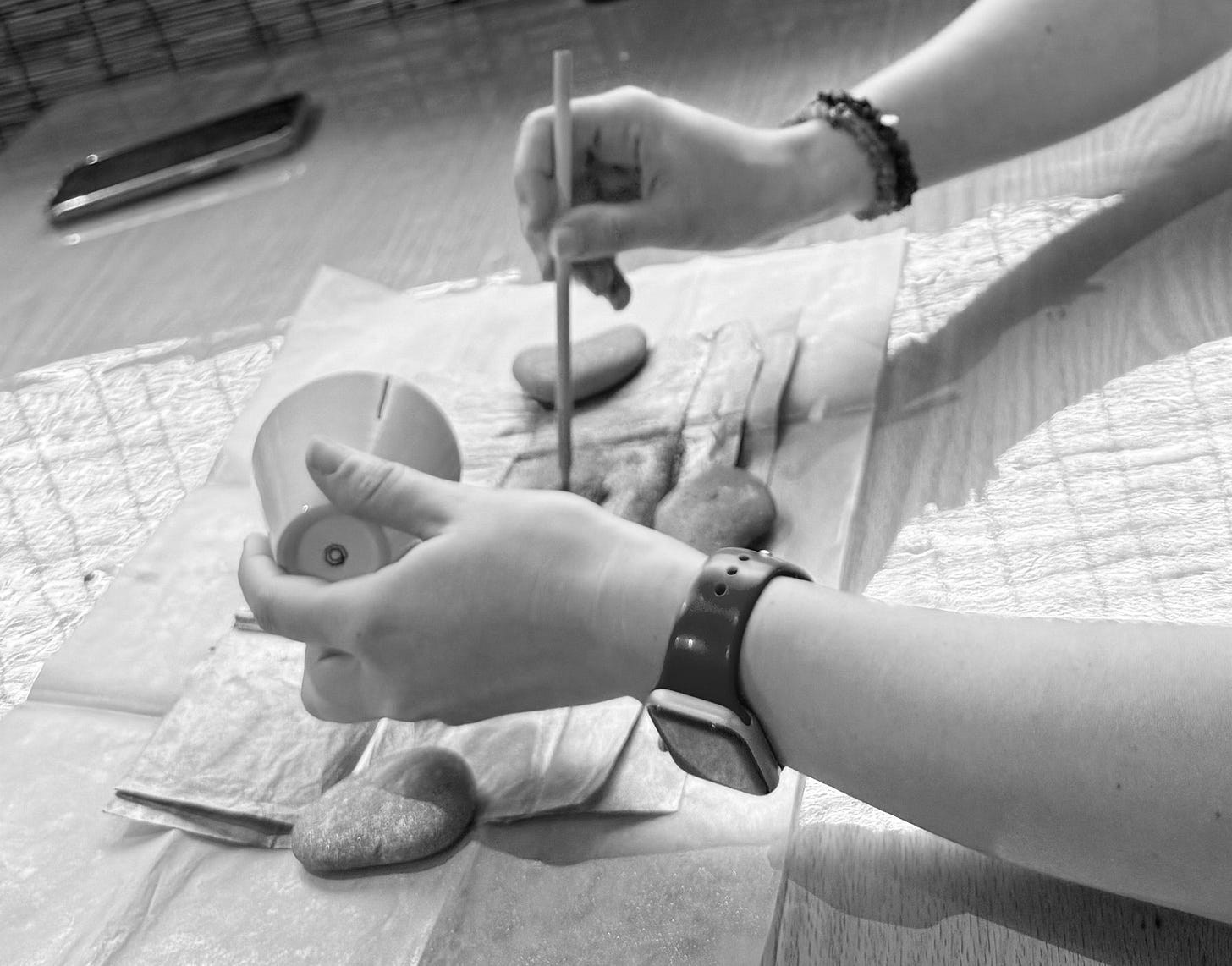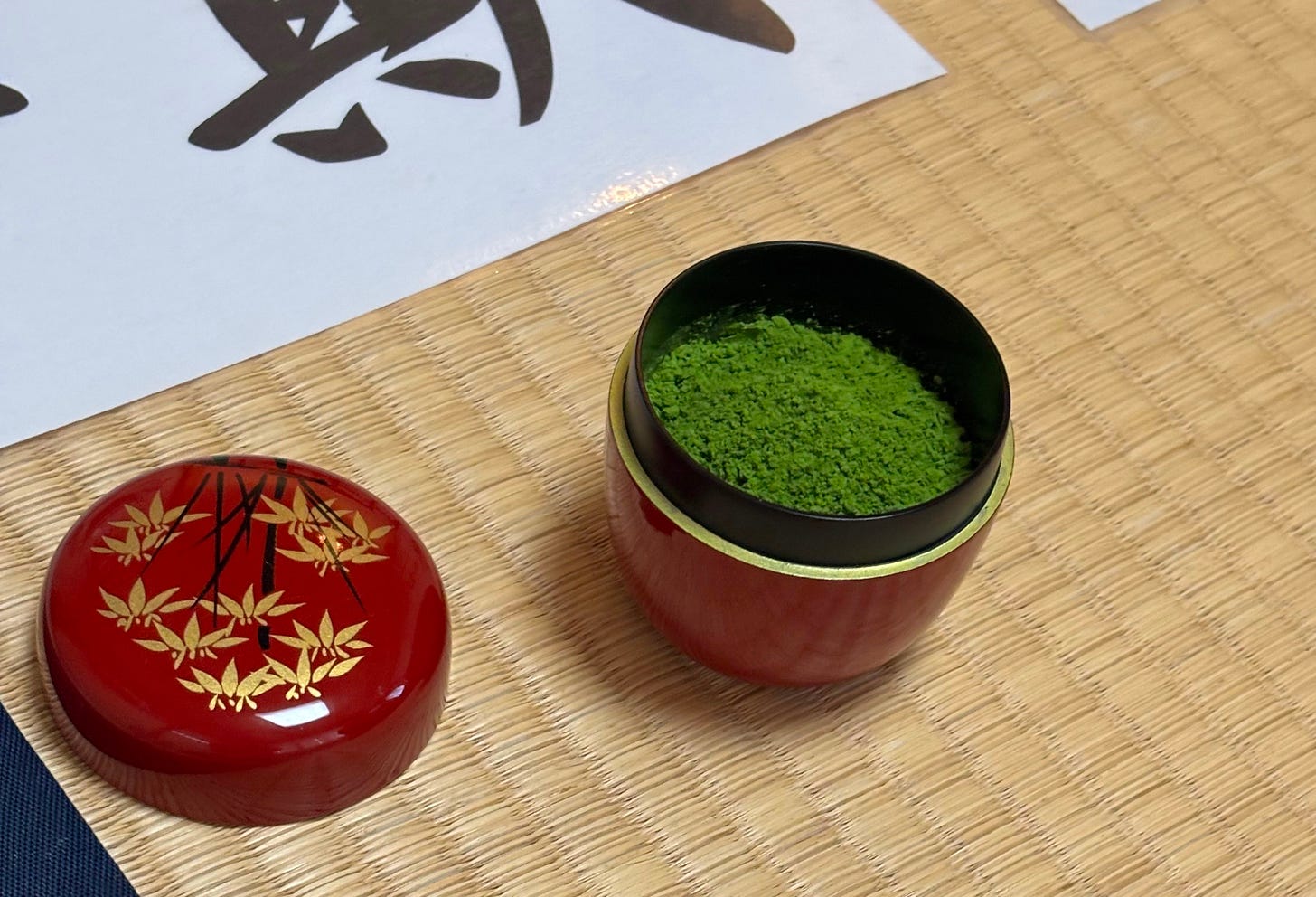Japan is not just a destination - it's a living philosophy waiting to be experienced. Every street, every ritual, every carefully crafted moment carries a deeper meaning that transforms travel from mere movement to a profound journey of understanding. It invites travelers not just to see, but to sense how ancient values still shape the rhythm of daily life.
Being in Japan, I see firsthand why this country perfectly blends my newsletter's two themes: travel and philosophy. Walking these streets feels like finding a missing puzzle piece in my understanding of both.
Japan makes philosophy tangible - like Kintsugi, the art of repairing broken pottery with gold, which teaches that beauty lies in embracing imperfection rather than hiding flaws. While in Kyoto, I took a Kintsugi class—an insightful experience that I plan to dedicate a full article to it soon.
When you walk through a Zen garden in Kyoto, you're not just observing a landscape, but participating in a meditative experience where emptiness becomes a form of presence. Each carefully placed rock, each raked line of gravel speaks a language of contemplation that goes far beyond traditional sightseeing.
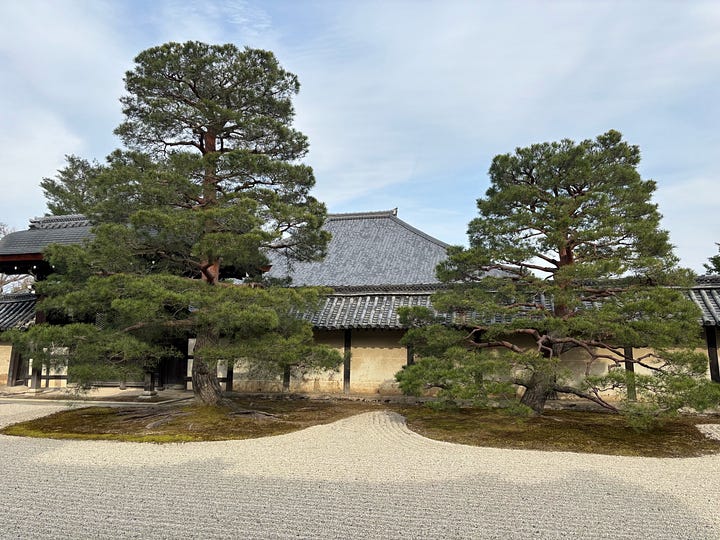
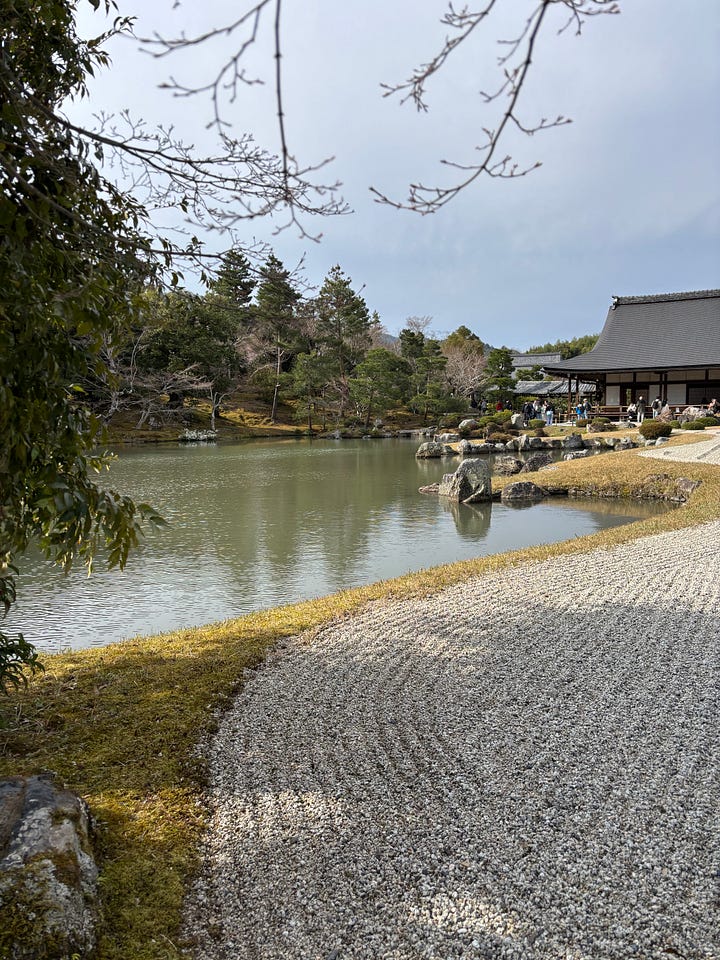
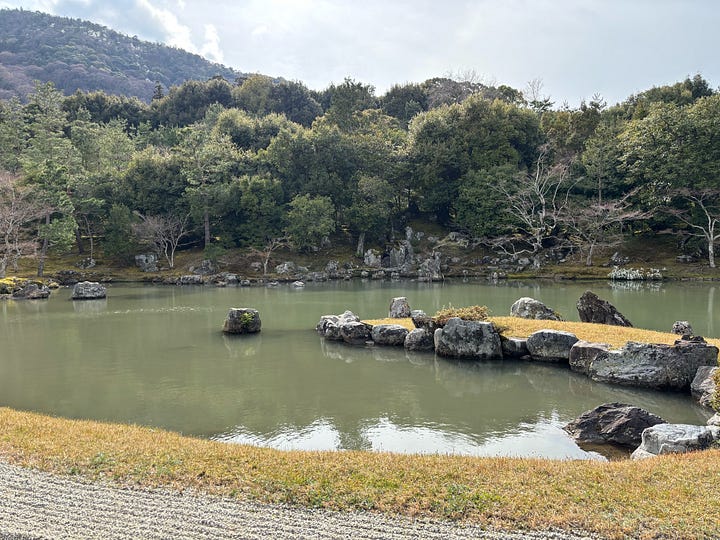
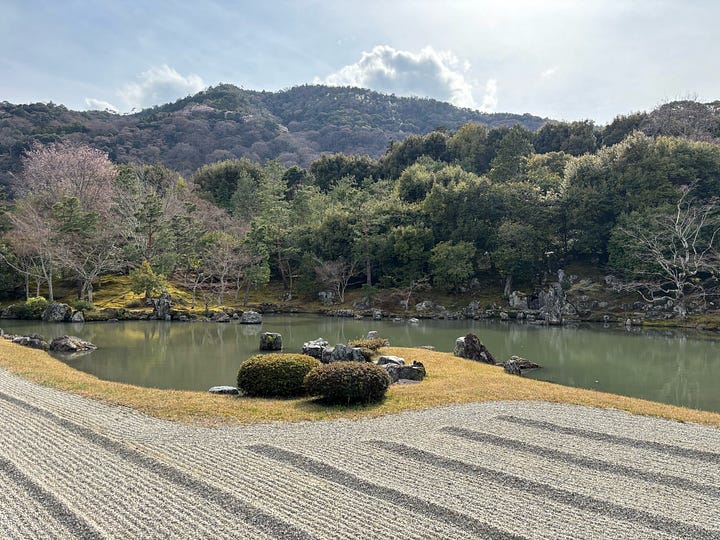
Traveling through Japan can become a practice of mindfulness.
The precision of a tea ceremony, the intentional design of a meal, the respectful queuing in train stations and not only there, but everywhere - these are not just cultural practices, but philosophical statements about harmony, respect, and interconnectedness. Each interaction becomes an opportunity to understand a worldview that values subtlety over spectacle, intention over impulse. Travelers quickly realize that in Japan, movement is not just physical, but a form of spiritual navigation.
The Japanese philosophy of "wabi-sabi"deepens the travel experience by showing the beauty in things that are imperfect and don’t last forever. An old wooden temple, a slightly asymmetrical ceramic bowl, a cherry blossom about to fall - these are not flaws, but profound expressions of beauty's ephemeral nature. Travelers are invited to shed their Western obsession with perfection and instead embrace the beauty of the incomplete, the weathered, the momentary.

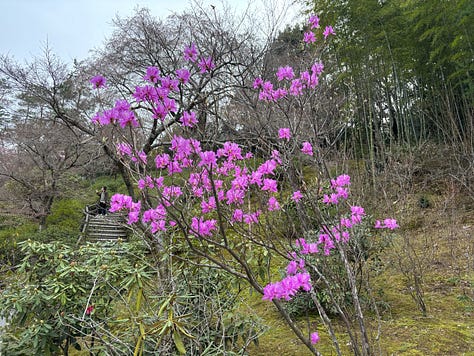
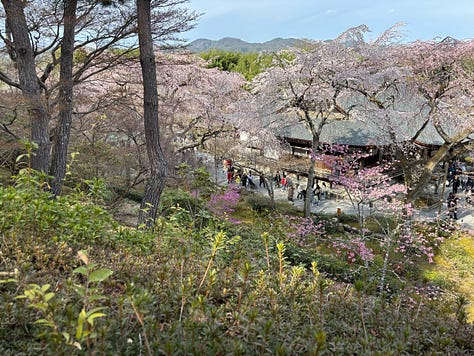
Traveling in Japan invites you to become more than a tourist. Each temple visited, Shinto or Buddhist, each trail walked, each conversation shared becomes a lesson in seeing the world differently. Japan doesn't just show you places, it reveals new ways of understanding beauty, time, and yourself.
What truths might reveal themselves to you if you moved through life with the reverence of a traveler, and not the rush of a tourist?


